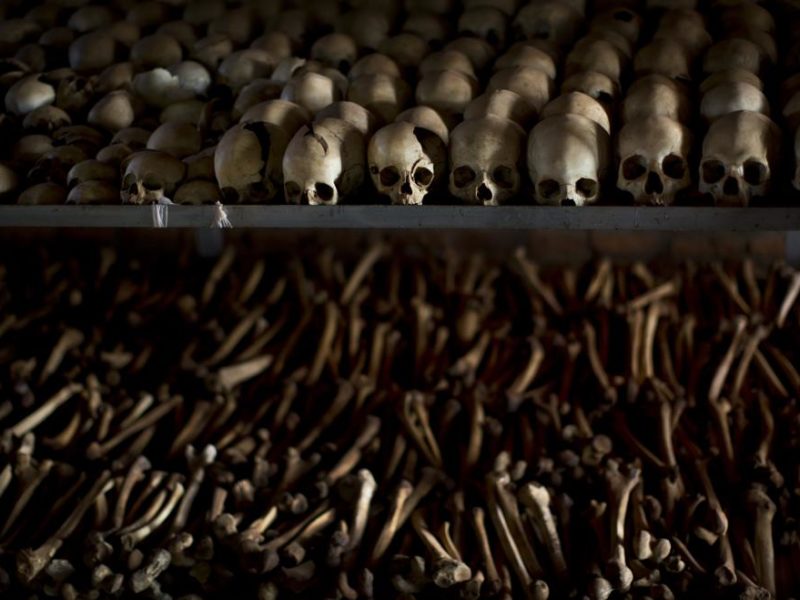Sisters of Rwanda
The Rwandan genocide of 1994 was a tragic period of history as most are aware, causing close to 1,000,000 deaths with over 99.9% of the population being witness to violence and death. Over 300,000 children were made orphans with over 85,000 under 18’s left with the responsibility of looking after their younger siblings. This has lead to many social problems with the younger generations today. Many girls were lead into prostitution due in large, to immense poverty and lack of knowledge of other alternatives.
This is a lonely life of abuse and neglect. Many are repetitively raped and it is believed that today in Rwanda around 25% of sex workers in Rwanda are HIV positive. Legally, Rwandan laws take a very strict criminalizing policy towards prostitution, with the sex seller rather than the sex buyer being prosecuted. When arrested the women are subjected to jail time with the children at most times being left at home to fend for themselves, and is too young left to die. Lots take to drug abuse as a way of coping with their circumstances leading to addiction and difficulty in taking proper care of their children.
Most are desperate to escape the industry but do not know how, feeling totally trapped. Sisters of Rwanda, is a new NGO attempting to break the cycle of prostitution in Rwanda, ending gender based violence and empowering women.
The start of Sisterhood
In the March of 2005 Pastor Joseph Ayienga began going out onto the streets, counseling women and giving them spiritual guidance, in an attempt to help them find a way off the streets. Although the women were unresponsive at first, lacking trust in men from years of abuse, in time they began to confide in Joseph, wanted to find out about the possibilities of leaving prostitution. Joseph did not like to call them ex-prostitutes so began to call them his sisters, leading to the name, ‘Sisters of Rwanda’. In May 2006 Jared Miller a long time humanitarian, met with Pastor Joseph and began to realise the possibilities to help these women escape from sexual abuse, aids and poverty. In December 2006 Sisters of Rwanda became a registered NGO and they haven’t looked back.
Programmes
Sisters of Rwanda now have a compound in the Gasbo District of Kigali where the women are able to come during the day with their children to take part in the programs offered. The NGO strongly believes in giving the women independence and are hoping to make the NGO financially self-sufficient by 2009.
(1) Income Generating Programme
Job opportunities are offered to the women, paying them a wage for pottery and embroidery. Through this, the sisters have a regular set income, hopefully decreasing the chance of them being forced back into prostitution. They are also in the midst of a deal with a big hotel chain, hoping to be given the rights to sell them regular supplies of soap and candles, enabling more sisters to enter the program.
(2) Education
The NGO has raised international sponsorship to enable some of the sisters children go to school. They are now paying the school fees for 34 children but are still in need for further sponsorship so as to be able to open this opportunity up for more. There are over 45 more children in need of education and it is also crucial that the funding continues to keep the current ones at school. They also offer after school English lessons to the children to aid them with their studies.
Future Development
There are also proposals in place to aid the women concerning their healthcare. Through research and interviews with the sisters, they realized the health problems countless face. In Rwanda most invest in a health policy. The Mutualle de Santé costs 1000 francs a year per person, which includes all health expenses. However many of the women, although having a policy, are not using it due to the consultation fee of around 200F, leading to illnesses.
Sisters of Rwanda wants ensure that all of the women and children are enrolled in Mutuelle, by creating a healthcare fund to subsidize the consultation fees and ensure that they are able to purchase medications, as at the moment many of the women are use traditional herbs when they are sick. They also want to put in place a comprehensive health education program to educate
women about reproductive health with a focus on preventative measures, and increase the women’s nutritional status through education and access to subsidized food. They would also like to offer the women education on their legal and human rights. Many are entitled to things such as child support but don’t know how to go about claiming it. When talking to the women they also discovered an interest in programs such as will writing, something of particular importance to the HIV suffers.
On a larger scale the NGO is also conducting advocacy to impact legal legislation for punishing prostitution in Rwanda. They would like to see the focus shift to criminalizing the buying rather than the selling of sex, placing the burden of punishment on the clients who perpetuate the sex trade, rather than the women who are trapped in the business. Moreover, they would like to see greater emphasis on programs to help sex workers leave the trade. A similar legislation was enacted in Sweden, with the government aiding programs similar to Sisters of Rwanda to give women other
options. As a result, the number of prostitutes dropped by two thirds and 80% of men discontinued buying sex. This truly highlights the enormous positive effect this change in law can make in decreasing the destructive pattern of sex selling.
How you can get involved: To find out more go to www.sistersofrwanda.org


